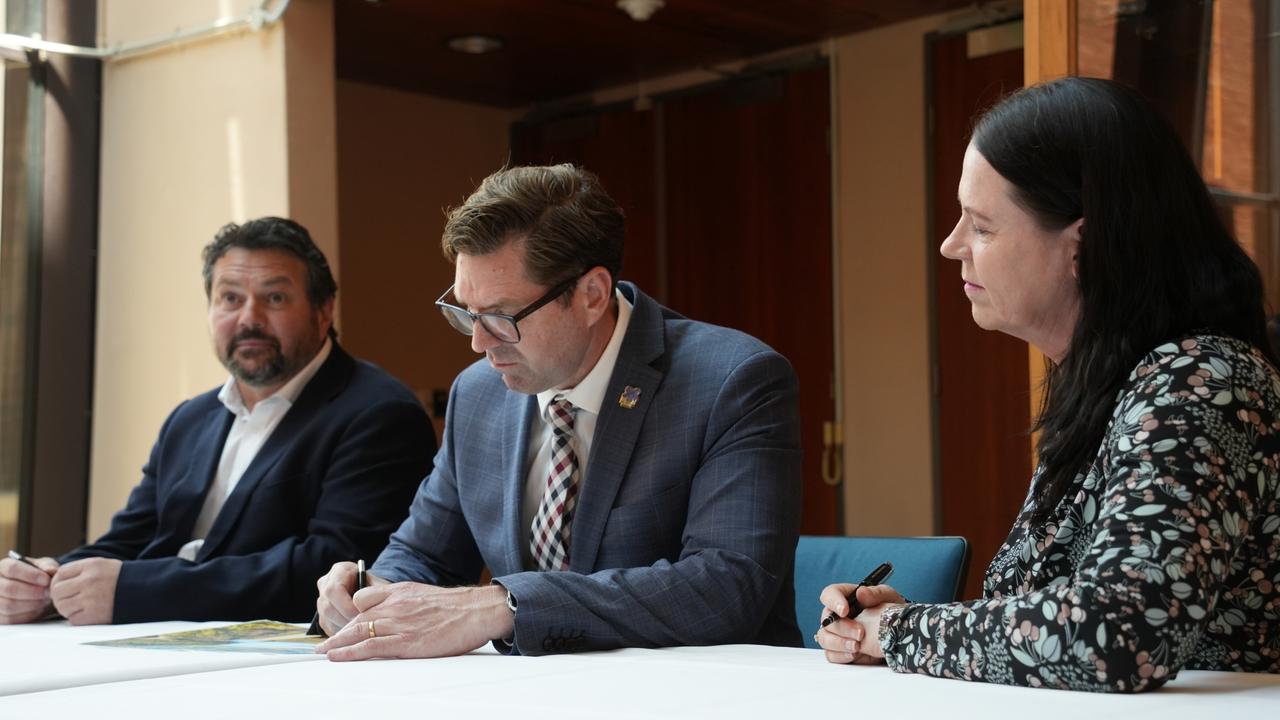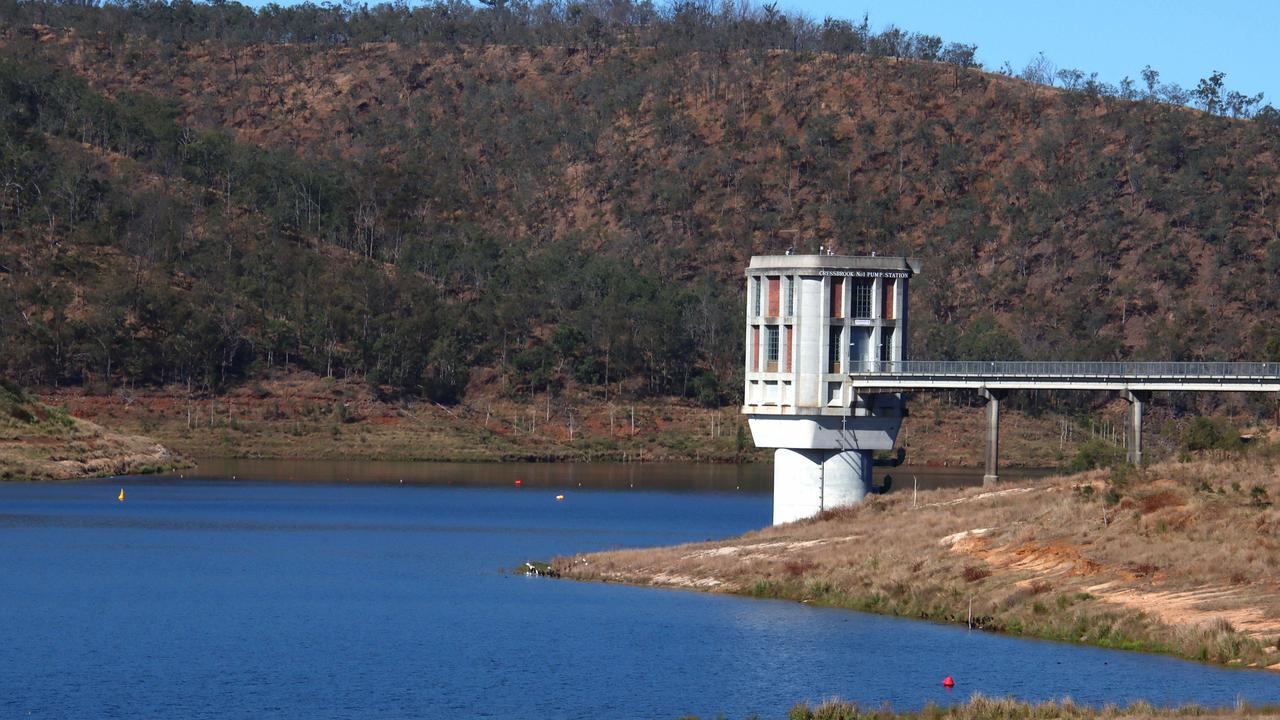Toowoomba Regional Council pleads for funding support for Cressbrook safety upgrades
Toowoomba residents could be expected to splash out 50 per cent more on water should council fail to secure external funding for $270m Cressbrook dam upgrade. Here’s a peek at your water bill in 2029:

Toowoomba
Don't miss out on the headlines from Toowoomba. Followed categories will be added to My News.
Within four years, residents across Toowoomba could be paying on average 50 per cent more for their water should Toowoomba Regional Council fail in its scramble to secure external funding for the $270 million Cressbrook dam upgrade.
Community leaders and elected representatives have long called out the need to prioritise the mandatory upgrade, put into place in 2008 with a deadline for completion by October 2025.
However it was not until 2022 when regular reports from Toowoomba Regional Council were provided to the state’s Department of Water.
In December 2023, the Toowoomba council signed a contract for the $270 million Cressbrook Dam Safety Project, the single largest project by a local Queensland government, with SMEC Australia and Seymour Whyte.

Now the multimillion dollar upgrade has become an elephant on the council’s budget as they scramble to seek external funding or raise the revenue by increasing the water bill.
Council’s 2024/2025 budget revealed the dam has already added an extra $120 dollars on rates a year for each property.
Thedamning news is that is the average water billis expected to jump 50 per cent by 2029, according to the business case submitted to the state government mid last year.
Toowoomba residents already pay an average water bill of $1115/year, and without external funding for Cressbrook, estimates expect the water bill to grow to $1710/year in 2029.
Canstar Blue, a financial comparison websites shows the average Queensland water bill is $940/year.
This week, the council made budget submissions to both the state and federal governments of up to $200 million for the dam upgrades.
Toowoomba mayor Geoff McDonald said “despite careful financial planning” the region was unable to carry the full cost of the dam.
Last year, council submitted an unsuccessful application for $20 million to a disaster ready fund through the federal government.
To date, the council has had no success in securing state or federal funding for the project.

Without external funding the significant financial burden would be on the community, council would have to review essential local government services, and deferring major projects, Mr McDonald said.
After a summer of heavy rain, the project was now facing “undeniable” delays, Toowoomba deputy mayor Rebecca Vonhoff said.
Queensland water and local government minister Ann Leahy said each council was responsible for upgrading the dams for the needs of the community.
“If delays occur, the department will work with the councils to help them meet their regulatory obligations,” she said.
Last year it was revealed spillway construction could only safely begin once the water levels in Cressbrook were at 70 per cent.
At the time the dam was at 83 per cent, and with the recent heavy rains, the seven months of attempts to lower the water level, such as turning off bores, letting aquifers recharge, and drawing an extra four megalitres a day from the dam have been in vain.
This week, the Cressbrook dam level sits at 86 per cent.
In July 2024, council was advised against implementing water rebates, adjusting tariffs or reducing water restrictions, citing significant revenue impact, encouraging negative water behaviours, and the potential to exceed system capacity.
The last time Cressbrook water levels were 70 per cent or lower was at the start of February 2022.








